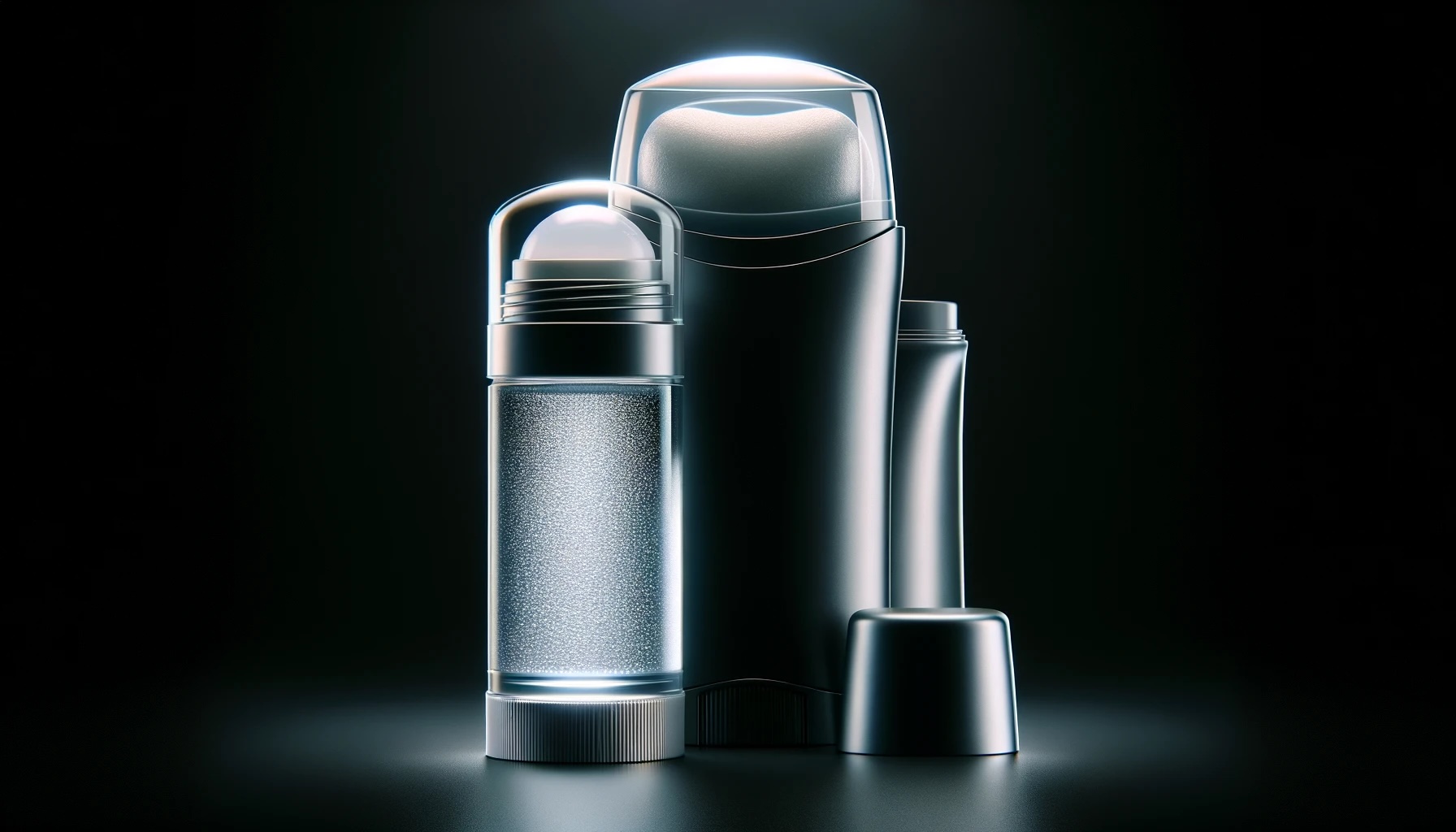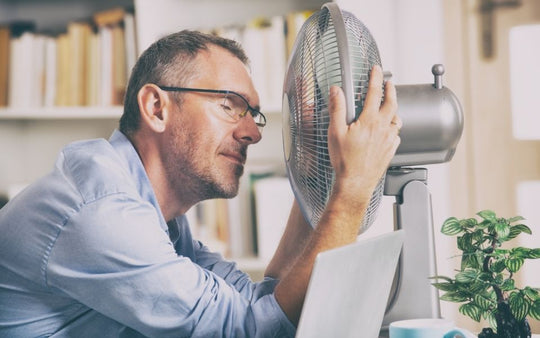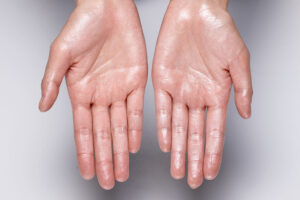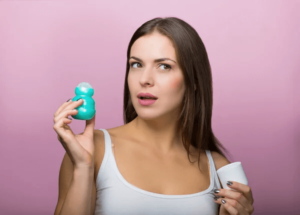Table of Contents
Body odor can be a tough topic to talk about with your kids and preteens. But if you notice that your child seems excessively sweaty or stinky, other people likely are noticing, too. You may wonder, “Is deodorant safe for kids?” Fortunately, there are many good types of deodorant for kids to help curb body odor issues while protecting against skin irritation. When looking for the best deodorant for kids, try these trusted options:
Top 5 Best Deodorant for Kids and Preteens
1. Natural Homemade Deodorant
2. Tom’s of Maine Wicked Cool! Deodorant
3. Schmidt’s Fragrance-Free Deodorant for Sensitive Skin
4. Crystal Spring Salt of the Earth Deodorant
5. Truly’s Organic Deodorant for Kids
If you want to have your child try a deodorant, you’ll need to choose a safe deodorant for kids. Many deodorants that work well for adults have harsh chemicals and toxins. Selecting a deodorant for kids is your best bet to avoid skin irritation.
What’s the Best Deodorant for Kids?
When shopping for a deodorant for kids, you should understand which ingredients to avoid and which ones to seek out so you can choose a safe product. Avoid parabens, since it has been shown to disrupt levels of estrogen. And skip any product with an artificial dye or fragrance that may cause allergies.
The best deodorant option for kids is a natural one. Look for organic ingredients, such as coconut oil, aloe vera, jojoba oil, and candelilla wax in a mild deodorant for kids. You may also find ingredients like baking soda, powdered sugar, or familiar essential oils in the safest deodorant for kids. You should be able to read and recognize the ingredient list instead of encountering a litany of unfamiliar, potentially harmful chemicals. This will help you know you’ve selected the best deodorant for kids with sensitive skin.
As a bonus, many of the best deodorants feature kid-friendly packaging and enticing scents to encourage regular use. You can also find deodorant for boys and other products for girls that can have great appeal.
Did you know you can make a natural deodorant at home? Chances are, you have many of the ingredients in your pantry right now to make an organic deodorant for kids. For example, you can use baking soda, natural corn starch, coconut oil, and essential oils like lavender to make a child-friendly deodorant right in your own kitchen.
Store-bought organic deodorant can be pricey, so why not make some at home instead? And if your children love baking or cooking, they will likely enjoy concocting their own homemade deodorant, too! By whipping up your own deodorant, you can feel confident in knowing your deodorant is free of harmful chemicals and safe for kids.
My Kid Seems Kind of Young to Sweat/Stink. Is this Normal?
Many parents assume that their kids won’t have body odor issues until they hit puberty, but that is not always the case. In fact, many pre-adolescent children start sweating as young as 8-10 years old — and some early bloomers may start even sooner.
If you start noticing excessive sweating and the pungent smell of body odor in your elementary-age kids, don’t panic. This is usually completely normal. And many of today’s best deodorant for kids can address your child’s odor concerns.
There are many causes of body order in younger children. In some cases, bathing or showering more regularly can help. Have them pay special attention to cleaning their underarms and the groin region since odor-causing bacteria tend to congregate in these areas.
It should come as no surprise that active children tend to produce more sweat. When sweat mixes with bacteria on the skin, a strong smell can result. If your child is an avid athlete or always on-the-go, you can expect some sweating and body odor to happen. It’s natural! Kids wearing deodorant can help in these scenarios, but bathing or showering after intense activity is also important.
Genetics can play a role, too. If a parent has a tendency towards sweating or body odor, kids may also. Early puberty runs in families as well. Some kids start producing adrenal hormones, such as DHEA and begin the maturation process before the ages of eight or nine. The right deodorant for kids can help these early bloomers feel clean and fresh.
An often-overlooked factor that can play a role in body odor is diet. Heavy red meat consumption can cause some people to emit a fishy odor. Smelly foods like fish or legumes or spicy foods can cause bad odors in kids and adults on occasion. And some people — especially those who are lactose intolerant — may project odors due to milk consumption.
While you may be able to help your child control some of these factors, it’s a good idea to familiarize yourself with deodorant alternatives. Successfully changing hygiene and eating habits can take a long time—and you don’t want body odor issues to affect your child’s self-confidence while they make those changes. When you know what type of deodorant is best for kids, you can make good choices for your family and help your kids feel their best.
What’s the Difference Between Antiperspirant and Deodorant?
Do you use deodorant or antiperspirant every day? It’s OK if you don’t know. Many people don’t understand the difference between antiperspirant vs deodorant, but there’s a significant difference.
A deodorant addresses body odor. It helps prevent the bacteria buildup of odor-causing bacteria on your skin but doesn’t address wetness or perspiration. Instead, a deodorant helps cover up or masks an unwanted smell. Most people apply deodorant to their underarms daily.
An antiperspirant helps reduce sweating by plugging the sweat glands on skin. Because antiperspirants affect the natural bodily function of sweating, the FDA classifies them as drugs. Some people mistakenly believe antiperspirants are harmful, but those myths have been debunked. There are varied strengths of antiperspirants tailored for different sweat levels, including prescription-strength antiperspirants.
Antiperspirants can be applied to the underarms and other parts of the body—and typically provide wetness protection for 24 to 48 hours or more. Often, people apply antiperspirants at night before bed to allow time for the skin to absorb antiperspirant and block sweat glands.
Should My Kid Use Antiperspirant or Deodorant?
For many children who haven’t hit puberty, the right deodorant for kids can be enough to control body odor. Start with homemade deodorant or the gentle and natural deodorant brands on our list. Remember that children’s skin is very sensitive and harsh chemical deodorants or antiperspirants can cause a reaction for some children.
If deodorant products don’t work — or if your child is naturally very sweaty — try an antiperspirant. In fact, the best approach is often to use both a deodorant and an antiperspirant. This combination gives you the odor-fighting qualities of deodorant plus the sweat-blocking power of antiperspirant.
How to Talk to Kids About Practicing Good Hygiene Rules
Let’s face it: Talking about sweat, body odor, and hygiene isn’t always fun. That’s especially true for children. And that’s also why it’s better to have hygiene conversations early so that kids develop good habits that they can carry with them into the adolescent and teen years.
Keep these discussions positive and focus on the benefits of good hygiene. Let kids know that the smell of body odor makes people uncomfortable — and can cause people to want to keep their distance. Taking baths or showers regularly and using deodorant can make a huge difference.
Remind them that many kids need deodorant. After all, companies wouldn’t make deodorant products just for kids if there weren’t lots of kids who needed them. And let them know that putting on deodorant each day takes a few seconds — but the effects can be long-lasting.
Give them a choice in selecting from the best kid deodorant products if possible. They may enjoy selecting a natural deodorant or one that smells especially pleasant. Keep in mind that a good deodorant is the one they’re most likely to wear regularly and feel positive about using.
What if My Kid is Still Sweaty and Stinky After Trying All of These Deodorants and Antiperspirants?
Sometimes, parents find that their children’s body odor issues persist after trying many of the best deodorant products. In these situations, using a clinical strength deodorant or antiperspirant formula designed for adults may be the answer. Remember to look at the ingredient list and watch children closely for reactions.
If regular antiperspirants don’t work, a strong antiperspirant like SweatBlock could be the right choice. An FDA-compliant antiperspirant, SweatBlock features a proprietary formula that creates a block in the sweat gland and can curb excessive sweating for a long time — often between four to seven days. These powerful results are why SweatBlock has earned a reputation the best antiperspirant for more than a decade. Most of our clients use SweatBlock to reduce sweating and a deodorant to stay smelling fresh.
It’s important to note that SweatBlock is an adult-strength product — but SweatBlock can work for children with excessive sweating issues. Before using SweatBlock, you should consult with your child’s pediatrician.
Also, if kids show signs of sweating and body odor during pre-adolescence, those issues can escalate in the preteen and teen years. SweatBlock can be an ideal choice in these scenarios.
What Deodorant is Best For Kids? Parents Have Many Choices
Having body odor issues can make anyone uncomfortable. Body odor can interfere with relationships and self-confidence. As a parent concerned about your child’s health and wellbeing, you should get to know several best deodorant for kids choices if your child has any body odor concerns. You can make your own natural deodorant at home or purchase an organic brand at the store. There are many safe kids deodorant products without chemicals and toxins that work well.
First, try the most gentle, natural and organic options available. Organic kids deodorant made at home with all-natural baking ingredients — like baking soda, coconut oil, and natural corn starch — can solve many kids’ odor issues. Plus, making natural deodorant for kids is cost-effective and fun! The best deodorant may be the one you mix together using baking ingredients you have in your pantry right now.
If a homemade deodorant doesn’t bring good results, there are several quality kids deodorant brands that are free from harmful chemicals and safe for kids. Tom’s of Maine Deodorant for Kids, Schmidt’s Fragrance-Free Deodorant for Sensitive Skin, Crystal deodorant for kids, and Truly’s Deodorant are all great deodorant products to try. These are just a few of today’s best deodorants for kids.
All deodorant brands have different compositions — and every kids’ body reacts differently to different products. You may need to try several products before you find one that works consistently for your child. In fact, you could find that a product touted as the best deodorant for sensitive skin doesn’t help your child at all. Be patient and persistent as you keep testing new products.
If the best natural deodorant options for kids don’t solve your kids’ body odor issues, you may need to move on to adult deodorant products. Remember these products may have chemicals and can cause skin irritations, so watch closely for reactions. A hypoallergenic deodorant or deodorant for sensitive skin could be good solutions.
When deodorants don’t address your kids’ body odor issues, it’s time to test antiperspirants. Before you do, make sure you understand the difference between a deodorant vs. antiperspirant. Deodorants curb bacteria to reduce body odor, while antiperspirants address sweat. Often people see good results by using both an antiperspirant to stop sweating and a deodorant to control odors.
If you’ve tried several products, but had limited success, consider a strong antiperspirant like SweatBlock. However, we always recommend that parents seek advice from a child’s doctor first. A pediatrician can assess whether SweatBlock is the right choice—or if there are other factors to consider or products to try.
Although you may have always assumed that kids and deodorant don’t go together, that’s not always the case. Some active kids sweat a lot—and sweat mixed with bacteria produces odor. Genetics and diet can also play a role. If better hygiene doesn’t conquer unwanted smells, you should get acquainted with the best deodorants made especially for kids. You may have success with homemade deodorant, an organic deodorant, or other products. If not, an antiperspirant like SweatBlock could be just what you need to help your child.
You might also like...

Antiperspirant vs Deodorant: What’s the Difference?
Table of Contents Did you know that deodorant and antiperspirant aren’t the same? It’s okay if you didn’t; most people

How to Stop Sweating Naturally – Huge List Tips & Home Remedies
Table of Contents For most people, sweating is a totally natural bodily function. For others, it’s a nonstop nightmare. Excessive

Top 10 Best Deodorants For Sweaty Armpits
Do you struggle with sweaty armpits? Has your deodorant let you down when it comes to stopping sweat and providing
















